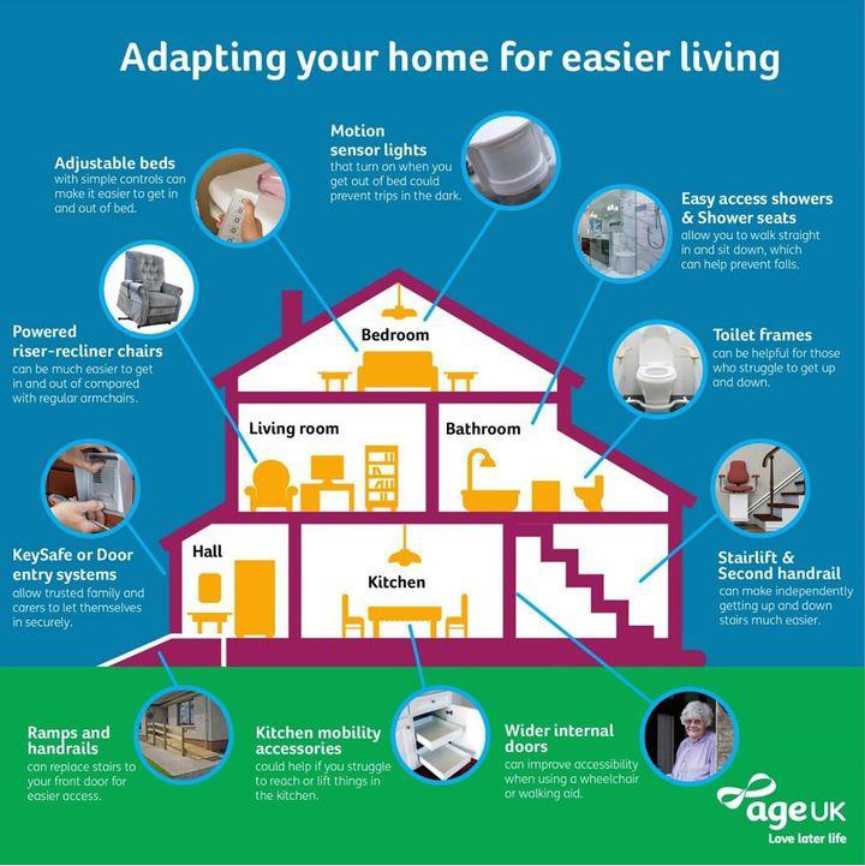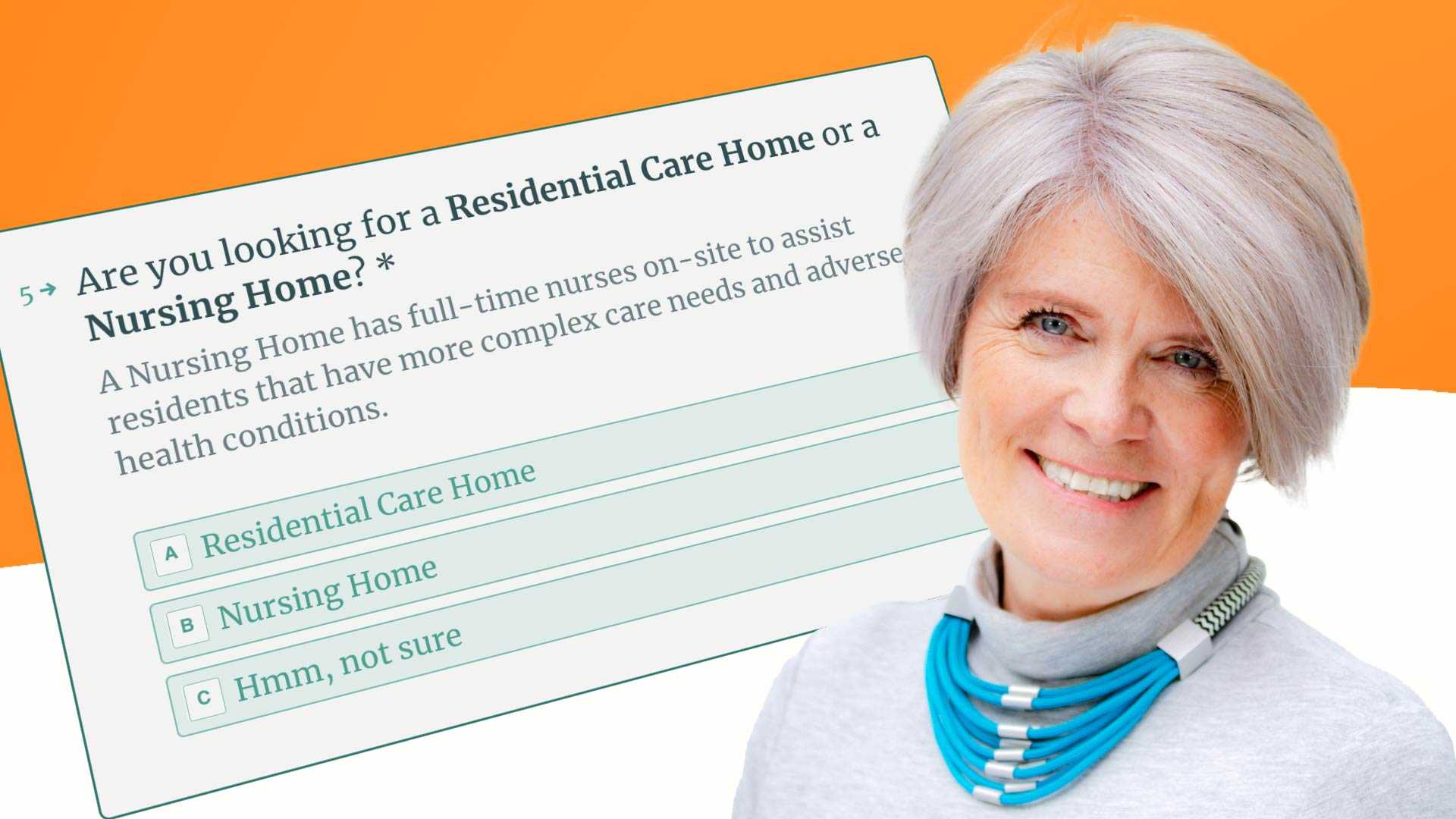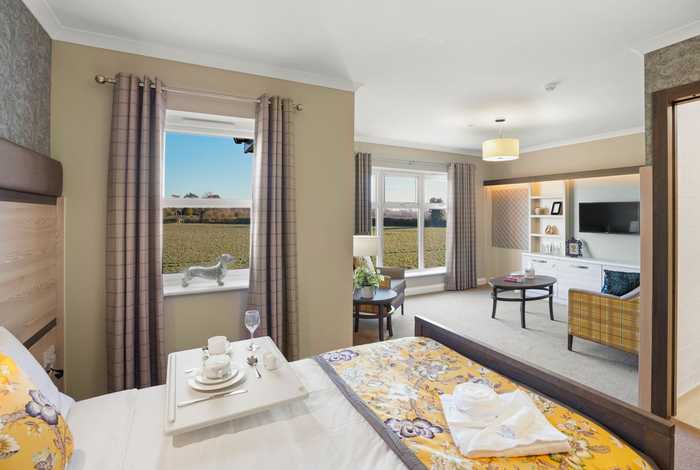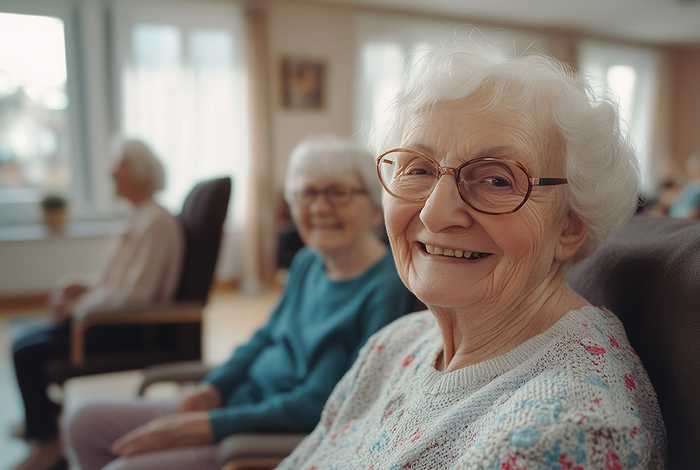Posted by Annie Button
Convincing your older relatives to leave their Forever Home
There comes a time in a person’s life when their home environment may need to change to accommodate the present and future needs of their age and stage.
That’s a really hard conclusion to reach and one that many older people would, understandably, much rather ignore.

This article offers some practical advice and suggestions on how to best support your elderly parents, relatives or friends if they are in denial when you bring up the topic of downsizing or assisted living arrangements.
- What can you do if they are evading the discussion?
- Carry on as if the problem isn’t there?
- Risk family discord by insisting they face up to their physical and/or mental decline and take action?
Having ‘the chat’ with your ailing parents or someone you care about in the latter stages of life may well be an awkward thing to have to do but it’s in everyone’s best interest to open the lines of communication as soon as you start worrying. If they can no longer manage the house, struggle to go to the local shops, or routinely forget to take their medication, it may be time for a rethink. After all, it’s much easier to act and make a change now rather than having to deal with potential emergency situations later on.
Here are some tips and guidance on how to convince them.
How to approach the conversation
Nobody wants to feel that they’re about to lose their independence, especially from their adult children. Depending on your individual family dynamics, your parents may be more or less open to hearing your concerns and taking them on board. The one thing you can’t do is tell your parents or close family what they ‘must’ do.
When you initiate the conversation about moving home, start by acknowledging your parents’ feelings about where they live. Talk about the years of memories, the family, neighbours and friends and all the good times to remember. Then slowly transition to the current situation and get them to see how things have changed for them. Is it the physical challenges of looking after a large family home and garden long after the children have flown the nest? Is it the financial pressures of maintaining a property that’s too much for their needs? Are there medical reasons why independent living may not be the answer for much longer?
Make suggestions about how you can help to make things easier for them. Maybe you could take over some financial admin responsibilities, which would also give you a better understanding of their wealth position. Or you could suggest home modifications or adaptations to make life safer and easier in their current home while contemplating the bigger picture. See this link for ideas to adapt their home for easier living.

What are the options for moving out?
Leaving the ‘forever home’ may be a hard decision, but it’s important to frame it as a positive move. There’s no one-size-fits-all approach – the right decision depends on the personal circumstances and individual needs of your parents/relatives. Here are some of the options you could consider:
- Downsizing to a smaller property
If your parents have lived in their home for a long time and the mortgage is paid off, there could be substantial equity in the property that can now be used to fund the purchase of a smaller, better suited home for them. This money could be invested in a low-maintenance new-build home that requires nothing more than a weekly cleaner to keep on top of things. If your parents or family members are mentally and physically strong and able to live independently, this could be a great solution.
Make sure that there are accessible local amenities such as shops and restaurants, medical facilities and leisure options to enjoy. If the new property can be close to you or other family members, even better.
- Moving into a retirement village
Retirement villages are housing developments built specifically with older adults in mind. They’re high-quality homes for active retirees offering plenty of amenities and services designed to make life interesting and enjoyable ‘in the autumn years’. All sorts of hobbies are catered for, so whether your mum or dad like painting or pilates, look forward to a daily morning swim or practising their golf swing, chances are that a retirement home near you will have the right facilities.
The main difference between a retirement village and a care home is that the former offers private unfurnished accommodation, either on a rented or purchased basis, which means people can bring their own furniture and decorate their new home as they wish. It’s a ready-made community of like-minded people who will be well looked after with a choice of light-touch care packages to suit their needs. Pets are usually welcome too.
- Sheltered housing and assisted living
Independent living with added support is available through various schemes. Sheltered housing usually takes the form of self-contained flats built for pensioners, with additional facilities such as a communal room for socialising, and some even have a pool. Sites are run by a warden or scheme manager who will be on hand for any day-to-day issues. There’s a 24-hour alarm system in case of emergencies.
Assisted living offers residents a greater degree of care and support than is available through sheltered housing, while still allowing elderly people to live independently. Self-contained flats, bungalows or houses will have additional communal facilities that vary from site to site. There will typically be care staff or designated nurses on site around the clock, and properties are fitted with alarm systems that are monitored 24/7, handy for residents with mobility issues.
- Moving in with family
The number of elderly parents living with their children is on the rise. According to official figures, a quarter of all caregivers provide disabled or elder care in their own homes. While the idea of having mum and/or dad live with you may appeal, it’s important to consider all aspects of what this means in practice, and consult all affected family members, before you make such a huge decision. While there are many positives to caring for your aging parents in your own home, there can be considerable downsides in terms of added stress and expense.
Consider the type of care you can provide in your home and compare how well this meets your parents’ or relatives’ care needs. Be aware of your own limitations in providing continuous care and how this may affect your relationship with your parents and family members going forward, as well as your relationship with the rest of your family. Last but by no means least, consider the extra financial burden placed upon your household and how you will manage.
- Moving into a care home
Finally, if your parents/relatives are at the stage where their mental or physical decline becomes obvious, a care home may be the best place for them. There are many different types of care homes and each one is specific in what is offered in terms of care. This could include day-to-day residential care, nursing care, dementia care and respite care. Some homes offer specialisms tailored to residents with specific backgrounds including religion, music, military or the arts. All care homes in England must be registered by the Care Quality Commission (CQC) and are regularly inspected. Scotland, Wales and Northern Ireland have their own regulatory bodies.

What is the easiest way to find retirement developments and elder care providers?
If you need the answer to any of these questions:
- How can I find the right care home for my mum?
- Where's the best home care agency near me?
- How can I find a really good retirement village close to us?
...then perhaps the best place to start would be to complete this short questionnaire. After that our team of later living experts at Autumna will be able to send you a simple shortlist of places and people in your area who can help with your specific needs.
Alternatively email us here: info@autumna.co.uk or call our Advice Line on 01892 335 330. The line is open seven days a week. (8:30am - 5:30pm Mon-Fri, 10am - 5pm Sat, 10am - 4pm Sun).
Other articles to read
Autumna Blog

Older Persons Care Advice
Ultimate guide to care homes in Norwich
April 23rd, 2025
Discover the best care homes in Norwich—explore lifestyle-focused options, top-rated services, and how to choose the right home with confidence.

Older Persons Care Advice
How to find an adult day care centre near you
April 22nd, 2025
Looking for an adult day care centre near you? Discover how to find safe, joyful care for your loved one—and support for yourself—on Autumna.

Older Persons Care Advice
How to shortlist care homes in Exeter
April 17th, 2025
Need help shortlisting care homes in Exeter? Learn how to filter options with confidence, compare homes, and find the best fit with Autumna’s free tools.
Frequently Asked Questions
Both terms are used in relation to sheltered housing but assisted living tends to have a greater degree of care and support on site.






